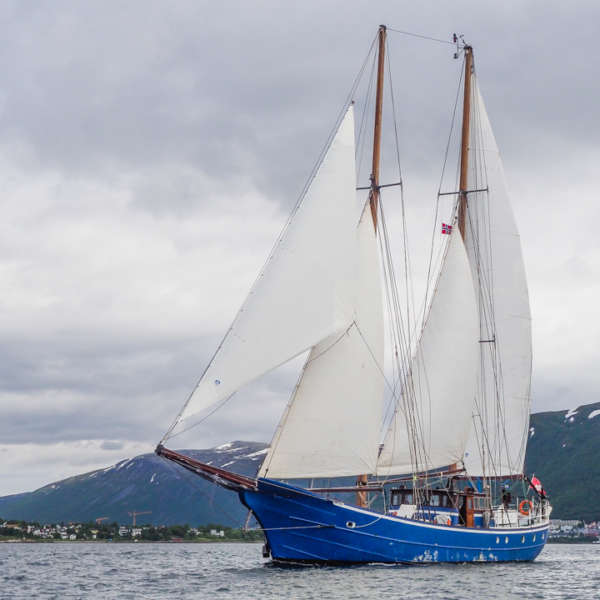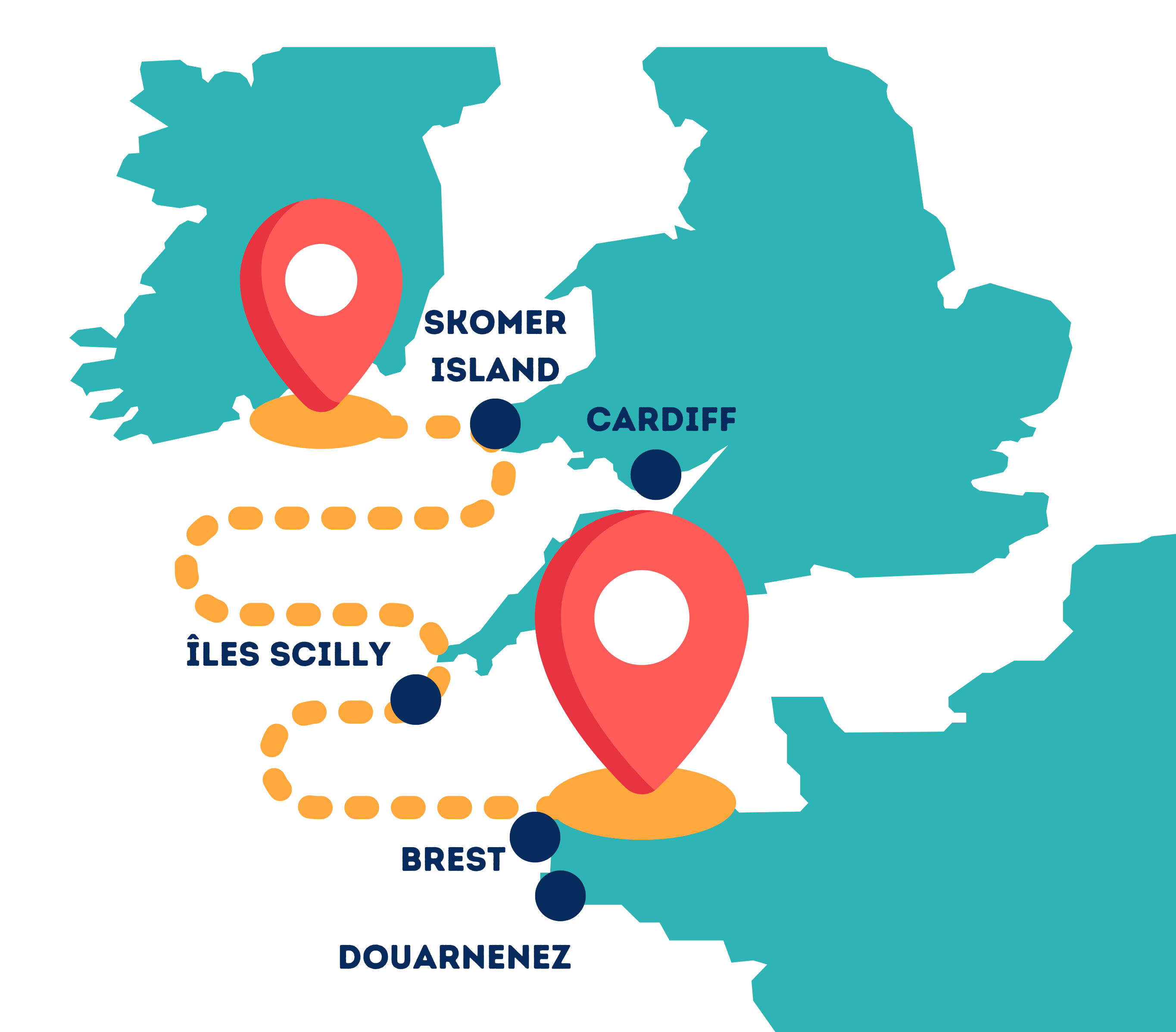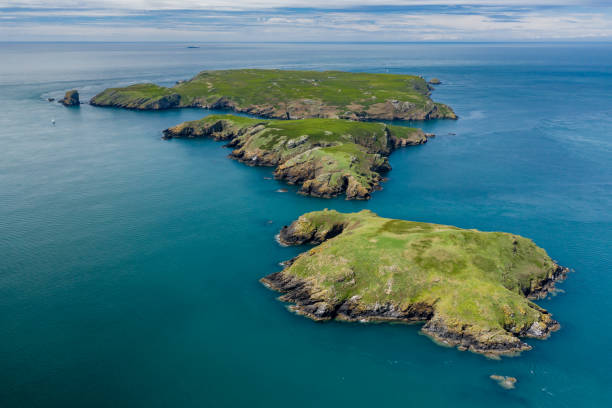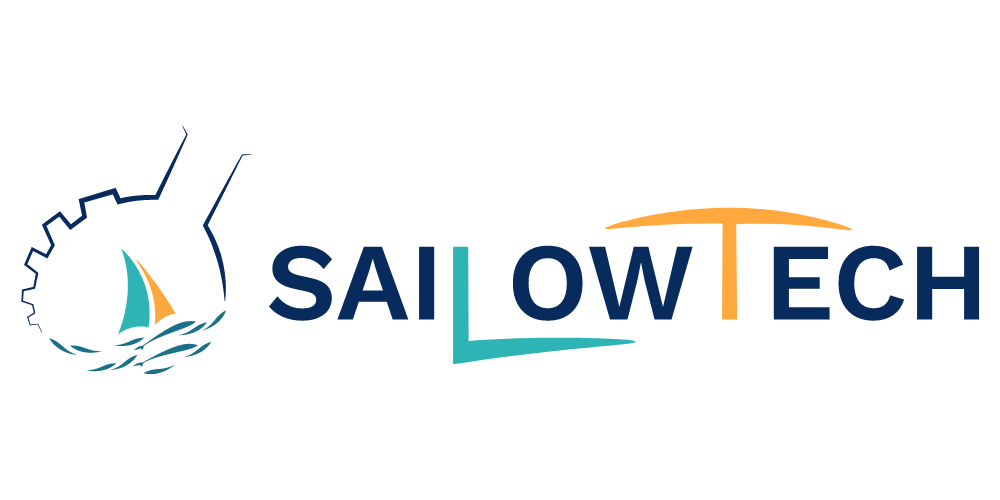Arvor
Conquering the English Channel
Sailowtech's third expedition will mark the end of the Plankton mission and a unique opportunity to study the human impact on plankton, as well as to quantify the nano-plastics present.
This new adventure will take place du 18 juillet au 11 août in the English Channel.
It will bring together a team of 18 students.
Our Project
The expedition Arvor is the third expedition of Sailowtech, succeeding the expedition Atlantea, then the shipping February 2024, Alpine Lake. This new expedition aims to bring the student·e·s of the EPFL closer to the ocean. It will take place around the English Channel between the coast of brittany, the islands Scylly, Cardiff and the island of Skomer in Wales. The expedition will include 18 student·e. We want to study, inter alia, the impact of climate change on plankton and quantify the nano-plastics, making our boat a real laboratory embedded.
Each day will be dedicated to the collection of samples for the different protocols with partner laboratories. The instruments Low-tech onboard, will also be tested and improved.
A turnus in the crew is provided so that we can make the shipment accessible to more students·e·s. Different stops will make these turnus. Also, these stations will carry out awareness-raising workshops with young people in the region. We wish for this to come in contact with the schools of sails and leisure centers in order to build the project with them.
Beyond the scientific project and the analyses performed, we hope that the expedition will allow crew members to develop their group cohesion, their life together and their ability to reduce their consumption and their needs through the test of the different Low-Tech and special attention to our food. We will share all of our shipping on our social networks and website to share the greatest number. The events on the campus of the association in the spring semester, we will also set before our shipping.
We believe that knowledge andwonder can contribute to educate and engage students to the protection of aquatic ecosystems.

The Mauritius, the Pacific schooner on which we will embark

Our itinerary

Photo of the island Skomer
Context
Plankton, often referred to as "drifting life", play an essential role in aquatic ecosystems as the basis of the food chain, contributing to water oxygenation and species survival. Zooplankton, which are eaten by fish, do not feed on phytoplankton. The balance between phytoplankton and zooplankton is crucial, and inappropriate human activities can upset this balance.
In partnership with various EPFL laboratories, we want to measure the impact of climate change on these species.
In partnership with various EPFL laboratories, we want to be able to measure, quantify and identify microplastics in this part of the world.
In collaboration with Fondation Pacifique
Alongside Pacifique, we will be at Maritime festivals of Douarnenez a few days before our expedition from 18 to 21 July.
On this occasion we will present you our tools and various projects on the Mauritius.

Our Scientific Projects
For this expedition, we are working with several laboratories in the region to establish reliable scientific protocols whose data can then be analyzed in the laboratory by students.
Dudin Lab EPFL
Sense Lab EPFL - CTD
The CTD is a probe (Conductivity, Temperature, Depth) which we have developed in partnership with the SenseLab from EPFL. This low-cost, modular sensor measures various physico-chemical parameters in water. In addition to the three basic sensors, others have been added: pH and dissolved oxygen. This instrument was designed by a student in the spring 2023 semester, and the project continues in the fall 2023 and spring 2024 semesters to improve the probe. Its electronic and mechanical design, battery and software program are to be improved, and the sensors are to be calibrated.
The data from this sensor will be used, among others, in addition to other scientific equipment to provide an environmental context for each sampling location.
The aim of this project is to contribute to the democratization of this type of low-cost tool, to enable an increase in oceanographic research and lead to a better understanding and preservation of the marine environment.
Sense Lab EPFL - Chamber degassing
In the spring semester of 2024, we will be working on a prototype degassing chamber for monitoring dissolved CO2. The aim of this degassing cell will be to recover surface water, extract its gases and continuously measure the dissolved CO2 concentration using a low-cost sensor, all as frugal and low-tech as possible. This project will be carried out in collaboration with SenseLab and will ideally be tested in real-life conditions during the 2024 summer expedition. The aim of this data will be to make the link with the issue of ocean acidification.
Sense Lab EPFL - upwelling System
This project will be carried out during the spring semester 2024 in partnership with the SenseLab from EPFL. The aim is to create a continuous surface water lift system (max 5m). The system should be easily portable and low-tech. This system will be used for other scientific equipment requiring surface water sampling.
LGB EPFL - Planktoscope
During the expedition, we'll be testing the effectiveness of a Planktosocope carried out by an EPFL student during the autumn 2023 semester at the LGBBiological Geochemistry Laboratory.
This tool is an open-source instrument for the quantitative observation of plankton. Its small size, ease of use and low cost mean that it can be adapted and used by as many people as possible.
The Planktoscope will enable us to observe the seedlings and identify them later.
LNET & CEL - Study of micro-plastics
Microplastics are a major source of pollution in lakes and oceans worldwide. Although well known, the effects of microplastics on the marine environment, and even the size and distribution of microplastics in the ocean, remain poorly understood. It is therefore imperative that we develop methods to quantify environmental plastic pollution in water sources, and that we are able to rapidly apply these methods on a larger scale. At present, identification techniques are still too costly and not easily transportable, limiting the amount of data available.
Because of this, in collaboration with the LNET (Laboratory of Nanoscience for Energy Technology) and the CEL (Central Environment Laboratory), we will develop a new technique of low-cost characterization of microplastics based on the Raman spectroscopy. Two parallel projects will be undertaken : the creation of a library of Raman signals of the different types of microplastics and the construction of a reduced system, and low-cost of the spectroscope Raman used in the laboratory.
Our embarked Low-tech Projects
The term " Low-Tech “can refer to objects, techniques, services, know-how, products and services. practices and even currents of thought integrating strong sustainability, collective resilience and cultural transformation.
This expedition's various Low-tech projects were embarked :
-
- Tubular solar cooker to reduce our consommaion gas and energy
- A speed regulator
- Piggott Wind Turbine
- Norwegian pot to decrease the gas consumption on board
- Test and design of the first prototype of solar desanilizer
- Crankset multi-function (drum washing machine, clothes dryer, mixer, electricity ect ...)
- Secchi disk to measure the depth of euphotic and the transparency of the water
These projects are carried out by students using recycled materials. A pictorial documentation of each project is produced and then shared to make the design of Low-Tech objects accessible to all students, in line with the principle of Open Science.
Our Artistic Projects
“Chromatic Depths : An Artistic Odyssey at the heart ofœPlankton”
This project aims to capture the beauty and diversity of plankton while documenting scientifically this sea exploration.
Objectives:
- Scientific Illustration : Precise, detailed illustrations of the plankton observed, allowing you to
artistic representation faithful, with annotations relevant scientific. - Synopsis Illustrated : Produce an artistic logbook documenting the expedition, including
sketches, drawings, annotations and reflections, artistic and scientific. - Capture the Emotion of the Experience Using art to convey emotions and inspiration, the challenges
and the moments experienced during expedition.
In short, this project raises public awareness of the importance of plankton and the need to preserve it.
of the ocean. By combining art and science, it captures the beauty of the ocean while preserving the environment.
scientific reality of our observations.
Artists: Eloise Frenais & Delphine Parel @chocolateandoctopus
Our Partners



